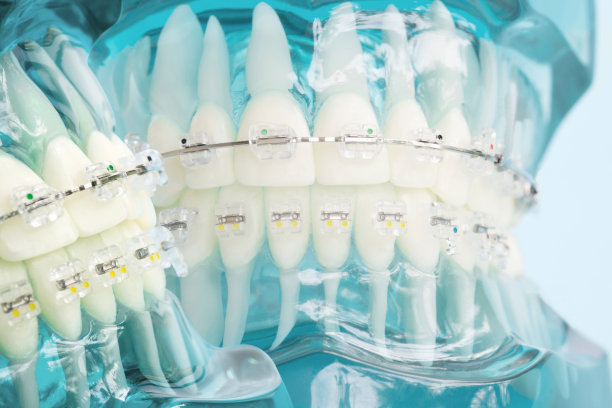Summary: Dental implants have emerged as a revolutionary solution for tooth loss, offering not only aesthetic improvements but also significant oral health benefits and an enhanced quality of life. This article will explore the lifelong advantages of dental implants from various perspectives, including improved oral health, enhanced functionality, the psychological impact on individuals, and long-term financial considerations. Each aspect sheds light on how dental implants serve as a critical investment in ones health and well-being, ultimately contributing to a more fulfilling lifestyle.
1. Improving Oral Health Through Dental Implants

One of the most significant benefits of dental implants is their ability to enhance oral health. Unlike traditional dentures or bridges, implants integrate seamlessly with the jawbone, mimicking the root of a natural tooth. This integration stimulates bone growth and helps prevent the bone loss often associated with missing teeth.
Additionally, dental implants eliminate the need for neighboring teeth to be altered, as is customary with bridges. This preservation of surrounding teeth maintains overall dental health and reduces the risk of future dental issues. With implants, individuals can also better maintain their oral hygiene, as they function like natural teeth, allowing for regular brushing and flossing.
Furthermore, dental implants can help reduce the risk of gum disease. A missing tooth creates spaces between teeth, encouraging bacteria buildup. Implants fill these gaps, promoting a healthier oral environment that helps fend off infections and other related problems.
2. Enhanced Functionality Restoring Lives
Dental implants restore full functionality to patients, allowing them to chew, speak, and engage socially without the fear of their teeth shifting or falling out. Unlike removable dentures, which can often slip or cause discomfort, implants provide a stable solution that behaves like natural teeth.
This functionality greatly enhances the quality of daily experiences, enabling individuals to enjoy a diverse diet without restrictions. Foods that might have been avoided due to discomfort or difficulty in chewing can now be consumed freely, leading to improved nutrition and overall health.
Moreover, improved functionality impacts social interactions as well. Individuals equipped with dental implants often experience increased confidence when eating and speaking publicly, enhancing their communication skills. These improvements reinforce social engagement, which is essential for emotional well-being.
3. The Psychological Benefits of Dental Implants
Beyond the physical advantages, dental implants offer substantial psychological benefits. The confidence boost from a complete smile can significantly impact an individual’s self-esteem. People often feel more attractive and capable when they’re no longer embarrassed by gaps in their smile, leading to improved social interactions and an enhanced social life.
This boost in confidence can extend into professional realms as well. Individuals may find themselves more willing to pursue opportunities, speak up in meetings, and engage with colleagues, further augmenting their quality of life.
Additionally, having a complete set of teeth can reduce feelings of anxiety and depression associated with tooth loss. The freedom to smile widely without self-consciousness brings happiness and a renewed sense of self-worth. This psychological resurgence resonates throughout a person’s life, positively influencing their mental health.
4. Long-term Financial Value of Dental Implants
While the initial investment in dental implants may seem high, when evaluated over the long term, they often present a cost-effective solution for dental restoration. Unlike dentures that typically need frequent replacements or adjustments, dental implants can last a lifetime with proper care, eliminating the need for ongoing costs related to maintenance.
Moreover, the maintenance of dental health with implants can lead to fewer dental visits and less spending on treatments associated with complications from missing teeth, such as gum disease. The financial savings over time can be significant, making implants a worthwhile investment.
Insurance policies are also beginning to recognize the value of dental implants, with some providing coverage for a portion of the costs. As awareness increases, more patients may find that the financial barriers are less daunting than initially perceived, encouraging more to opt for this effective solution.
Summary:
In conclusion, dental implants provide numerous lifelong benefits that improve oral health and enhance quality of life. From preserving surrounding teeth and stimulating bone growth to restoring functionality and boosting psychological health, their advantages make them a compelling choice for anyone dealing with tooth loss. Beyond immediate effects, dental implants also promise long-term financial benefits, making them a valuable investment for improved health and happiness.
This article is compiled by Vickong Dental and the content is for reference only
Vickong Dental
Vickong Dental is a large medical group established in Hong Kong in 2008 by professors from well-known medical universities in Guangdong and Hong Kong, as well as medical doctors from key national '985' universities (including Master's supervisors and senior professors). The chain of branches brings together expert dentists with PhDs and Master's degrees from Hong Kong and Mainland China, committed to providing high-quality dental treatment.
"Vickong Dental Practices the University Motto of 'Healing and Serving Society,' with a Stable Operation for Sixteen Years. It Has Been honored with Hong Kong Enterprise Leaders's Choice,' and is a Global Trusted Implant Center for the Nobel Implant System. Recommended by Hong Kong Metro Broadcast and Guangdong Television, it Serves Customers from Over Thirty Countries and Regions, Gaining the Trust and Favor of Citizens from the Guangdong-Hong Kong-Macau Greater Bay Area and Surrounding Cities.

Thousands of customers' unanimous praise
The most recognized and highly recommended dental service by customers in the Guangdong-Hong Kong-Macau Greater Bay Area
We Ensure You Receive Detailed Care and Attention Here
Hong Kong standards, Shenzhen prices, Your Trusted English-speaking dentists

Vickong Dental Medical-Grade Instrument Disinfection Process
Vickong Dental Medical-Grade Instrument Disinfection Process

Vickong Dental Chain: A Warm and Comfortable Environment for Treatment






Appointment Hours

Q&A
Why choose Vickong Dental?
Vickong Dental practices the university motto 「Medicine to Benefit Society」, with each branch bringing together highly qualified dentists with doctoral and master’s degrees from Hong Kong and the Mainland, and has maintained seventeen years of steady operation。Recipient of 「2024 Hong Kong Enterprise Leaders Brand」, 「2025 Hong Kong Enterprise Leaders Brand」, a Nobel Biocare Global Trusted Implant Center, and a brand recommended by Metro Radio Hong Kong and Guangdong TV。
To date, we have served customers from more than thirty countries and regions,earning exceptionally high word-of-mouth recognition and trusted recommendations from residents across the Guangdong-Hong Kong-Macao Greater Bay Area and surrounding cities
We have eight major branches in Zhuhai、Shenzhen,and a consultation and service assurance center in Hong Kong,so you can book a free consultation at any time for any questions,which is very reassuring.
If I do not accept the quotation after the CT scan, will I be charged??
No! As long as the actual treatment has not started, you will not be charged any fees.
Will there be any additional charges during the treatment process?
No, there won’t be any additional charges. Before treatment begins, we will clearly explain the treatment plan and its corresponding fees. Only after the patient agrees and signs the consent form will we proceed with the dental service.
Can I pay in Hong Kong dollars?
Yes. Vickong Dental accepts payment in Hong Kong dollars. The amount will be converted based on the exchange rate of the day, and the applicable rate will be clearly communicated to you in advance.
Can I reschedule my appointment at any time?
Yes. Please contact us via **WeChat** or **WhatsApp** as early as possible, providing your original appointment time and details, along with your preferred new date and time slot for rescheduling.













